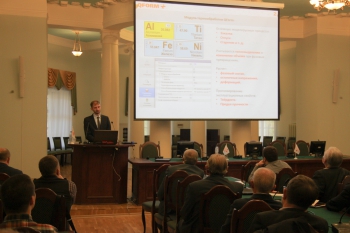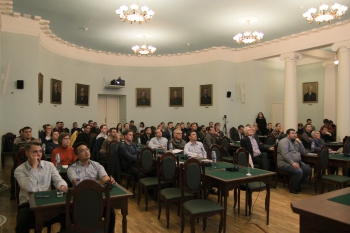QForm Seminar took place on 27 September in Moscow. The simulation of microstructure evolution and heat treatment in QForm
QForm Seminar took place on 27 September in Moscow. The event was dedicated to the simulation of microstructure evolution and heat treatment in QForm. More than 100 participants attended the seminar: representatives of 14 enterprises and 13 universities from 5 countries took part in the event, including specialists from the nuclear, metallurgical, aviation and automotive industries. Among the guests were representatives of universities in Kazakhstan, Germany, Austria and Egypt.
During the seminar we demonstrated the capabilities of new QForm modules for simulation of microstructure evolution and heat treatment of alloys, both with and without polymorphic transformations (including steel, aluminum, nickel and titanium alloys). Johnson–Mehl–Avrami–Kolmogorov (JMAK), Kostinen–Marburger, Lee–Van Tyne, Leblonde–Devaux and other models were implemented in this program. To set the source data, in addition to the available models in the database, a so-called «calculator» can be used - an assistant for creating multi-phase material for steels.


In fact, in these modules we implemented the advanced viable ideas for microstructure prediction which make it possible to evaluate the following parameters: phase composition, residual stresses and strains, hardness and ultimate strength, volume fraction and average grain size for dynamic, static and metadynamic recrystallization.


The simulation of the following processes is possible: solution treatment, quenching (including interrupted quenching, isothermal quenching, austempering marquenching, self-tempering) etc. It is possible to simulate the processes of thermomechanical processing taking into account strain history when simulating microstructure and thermal processes.


The awarding of the International Students Olympiad in Hot Bulk Forging and Extrusion Technologies 2018 to the winner took place at Bauman Moscow State Technical University. This year the Olympiad was attended by students of 41 universities from 16 countries. The students' reports were judged by an international committee consisting of scientists from 8 countries.

Congratulations to first place winner: Dmitriy Krivenko, Bauman Moscow State Technical University, Russia!




